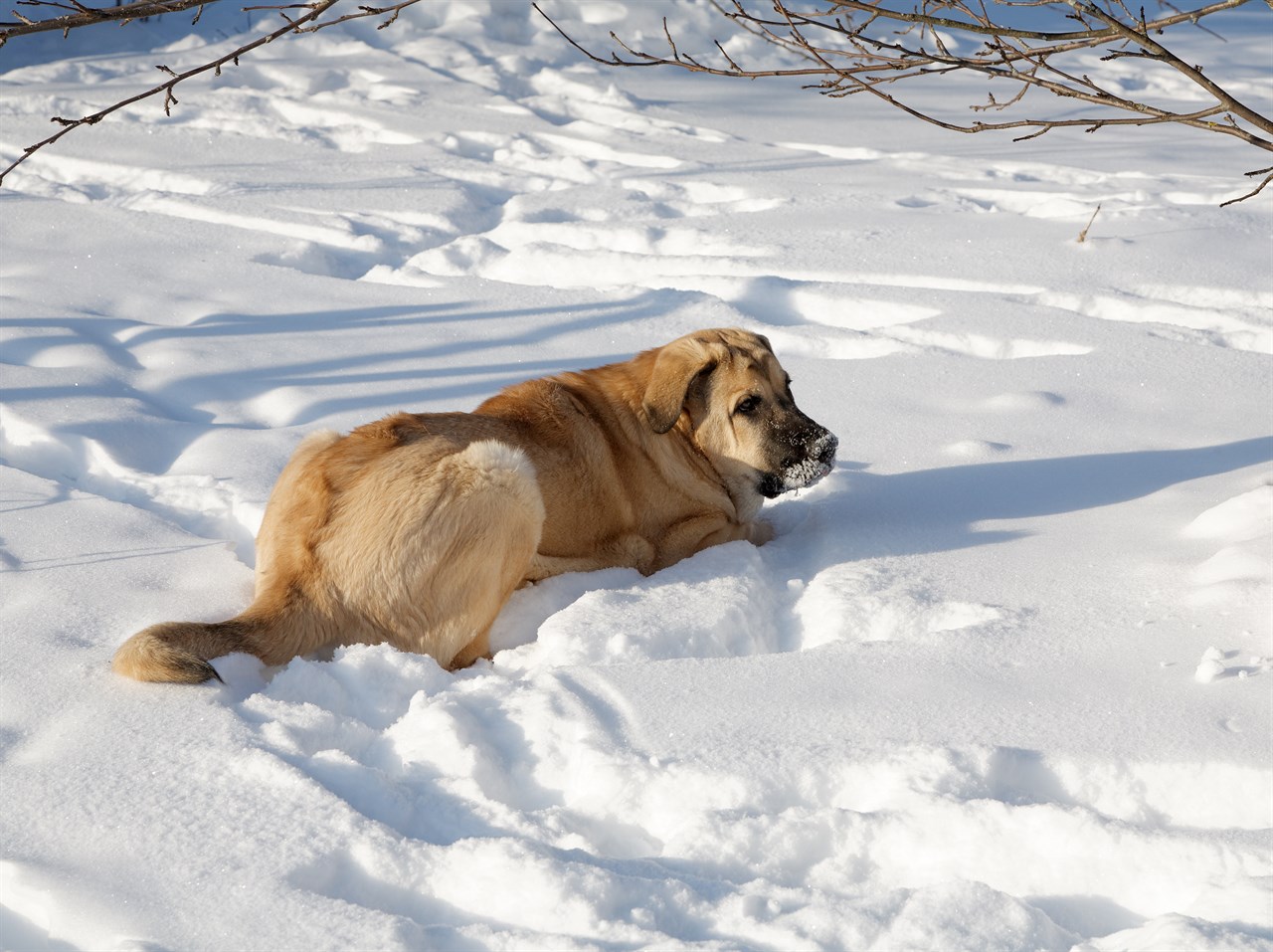Sleeping Requirements and Habits of the Spanish Mastiff

The Spanish Mastiff, like all dogs, has specific sleeping requirements and habits that contribute to their overall health and well-being. Understanding these needs will help you ensure your Spanish Mastiff gets the rest they need for a happy and healthy life.
Hours of Sleep
Dogs, including Spanish Mastiffs, spend a significant portion of their lives sleeping. On average, adult dogs sleep for about 12 to 14 hours a day. Puppies and older dogs may sleep even more, often up to 18 hours a day. This variation can depend on the dog's age, activity level, and overall health.
Quiet and Comfortable Sleeping Area
Providing your Spanish Mastiff with a comfortable and quiet sleeping area is essential. A cosy dog bed or crate with soft bedding can give them a dedicated space to rest. Ensure that the sleeping area is in a quiet part of the house, away from excessive noise and disturbances.
Daytime Naps
Spanish Mastiffs are known for their calm and laid-back nature. They may take short naps throughout the day, especially if they are not engaged in play or other activities. These brief breaks help them recharge and stay alert when needed.
Nighttime Sleep
A good night's sleep is crucial for your Spanish Mastiff's overall health. They typically sleep through the night, although puppies may wake up more frequently for bathroom breaks. To ensure uninterrupted sleep, take your puppy out before bedtime and establish a consistent nighttime routine.
Snoring
Due to their large size and deep chests, some Spanish Mastiffs may be prone to snoring. While snoring is generally harmless, if it becomes excessively loud or irregular, it may be a sign of an underlying health issue, and you should consult with a veterinarian.
Temperature Considerations
Spanish Mastiffs have a thick double coat, which provides insulation. They are well-suited to colder climates but can be sensitive to excessive heat. Ensure their sleeping area is well-ventilated and cool during hot weather to prevent overheating.
Bedtime Rituals
Establishing bedtime rituals can help signal to your Spanish Mastiff that it's time to sleep. This can include a short walk before bedtime, a calming bedtime snack, or a few minutes of quiet bonding time.
Health and Comfort
Monitor your Spanish Mastiff's sleeping habits for any changes. Sudden changes in sleep patterns, such as increased lethargy or difficulty getting comfortable, may indicate an underlying health issue. Consult with your veterinarian if you notice any significant changes in their sleep behaviour.
In conclusion, understanding the sleeping requirements and habits of the Spanish Mastiff is essential for their physical and emotional well-being. Providing a comfortable and quiet sleeping area, maintaining a consistent routine, and monitoring their sleep for any changes will help ensure your Spanish Mastiff gets the rest they need to thrive.
Spanish Mastiff puppies for sale
- Find Spanish Mastiff puppies for sale in ACT
- Find Spanish Mastiff puppies for sale in NSW
- Find Spanish Mastiff puppies for sale in NT
- Find Spanish Mastiff puppies for sale in QLD
- Find Spanish Mastiff puppies for sale in SA
- Find Spanish Mastiff puppies for sale in TAS
- Find Spanish Mastiff puppies for sale in VIC
- Find Spanish Mastiff puppies for sale in WA